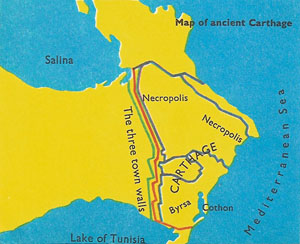D
Dreeparn
Guest
I was thinking of placing one, maybe two capitals right next to a river running through the continent where my story takes place. The position would actually be very good from a trading view and also it would fit well into a world where commerse is very important. The problem is that I know almost nothing of medieval engineering and I want the Capital to have a wall because despite the trading this is not a peaceful world.
So i wonder if it was possible to constuct a city including walls close to a river using medieval techniques? I also wonder how you would build the city, I've been thinking that the wall would extend around the city and run all the way to the river edge to protect the docks, then it would be another wall that shut the docks from the rest of the city in case of an attack.
The other thing I was thinking about was how usuall it was to conduct trade via river in medieval times, I guess downstream would be a piece of cake but upstream? If you are hauling any amount of cargo it would require alot of rowers if you are ever going to get anywhere.
Hope somebody has some time to anwser the questions
So i wonder if it was possible to constuct a city including walls close to a river using medieval techniques? I also wonder how you would build the city, I've been thinking that the wall would extend around the city and run all the way to the river edge to protect the docks, then it would be another wall that shut the docks from the rest of the city in case of an attack.
The other thing I was thinking about was how usuall it was to conduct trade via river in medieval times, I guess downstream would be a piece of cake but upstream? If you are hauling any amount of cargo it would require alot of rowers if you are ever going to get anywhere.
Hope somebody has some time to anwser the questions

 Sage
Sage
 Acolyte
Acolyte Istar
Istar Myth Weaver
Myth Weaver
